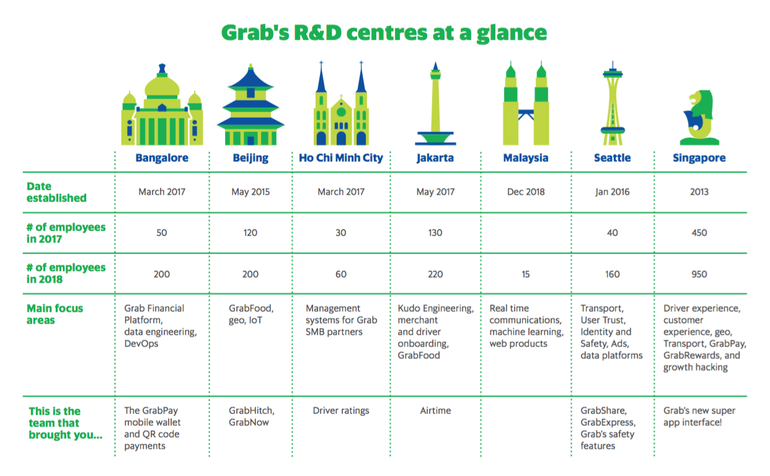Grab has opened a research and development (R&D) facility in the Malaysian capital of Kuala Lumpur, which will focus its efforts on tapping machine learning to improve driver safety as well as developing real-time communications capabilities.
The new R&D lab is its seventh worldwide and first in the country where Grab was founded in 2012, when it began as a ride-sharing services provider before branching out to include other services such as food delivery and digital payments.
It also has research teams in Singapore, Bangalore, Ho Chi Minh City, Beijing, Jakarta, and Seattle. It hires some 2,000 technology specialists globally, with the largest tech resource sitting in Singapore where it employs 950.
Grab said it planned to hire 100 technology specialists, including data scientists and software engineers, in its Kuala Lumpur R&D facility, which would focus its efforts on developing real-time communications function and tapping artificial intelligence (AI) to improve driver safety.
These included voice-over-Internet Protocol (VoIP) calls via its GrabChat messaging platform and using machine learning to enhance its Driver Fatigue feature, which assessed a driver’s weariness based on factors such as time of day, rest between shifts, their age profile, and the length of time they had been on the road. Alerts would be sent to drivers when they hit a high fatigue level.
Grab’s engineering head Ditesh Gathani said the company hoped to build up local tech skills through its Malaysian research lab, specifically, in areas such as machine learning.
It also is looking to add 1,000 tech jobs next year as it aims to drive its app development, including its API suite GrabPlatform.
In July, the company joined hands with the National University of Singapore to set up an AI laboratory to study transport patterns across Southeast Asia and develop applications to “transform” urban transportation. The site was launched with an initial joint investment of S$6 million (US$4.4 million) and would tap data from Grab’s platform, which had processed more than 2 billion rides.

(Source: Grab)
